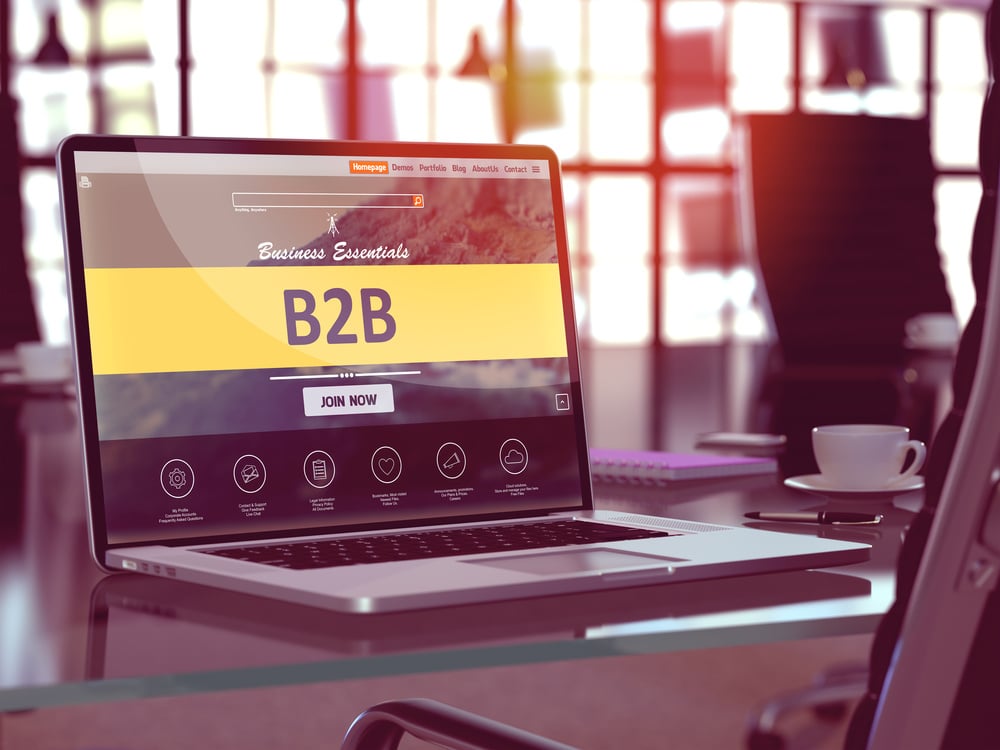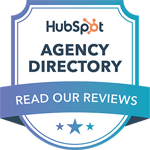
The world of B2B marketing is experiencing a remarkable transformation. Businesses are now tasked with crafting campaigns that engage their target audience and drive tangible results. Lately, we have witnessed B2B marketing campaigns that pushed the boundaries of creativity, innovation, and impact.
Looking for fresh B2B marketing campaign ideas? This blog entry will showcase successful examples that have resonated with target audiences and delivered impressive results. Let's explore the 10 best B2B marketing campaigns and uncover the key insights that can help shape your marketing strategy.
Why Effective B2B Marketing Campaigns Matter
Unlike B2C marketing, which often focuses on emotional appeals and mass market tactics, B2B marketing requires a more strategic approach. It's about building relationships, demonstrating value, and solving specific business problems. Successful B2B marketing campaigns can enhance brand reputation, drive customer engagement, and significantly impact the bottom line.
Image source: Incisive Edge
Marketing campaigns are essential for driving brand visibility, generating qualified leads, and, ultimately, fueling business growth. Successful B2B marketing campaigns can significantly impact key metrics such as website traffic, social media engagement, and return on investment (ROI).
What Makes a Good B2B Marketing Campaign?
A successful B2B marketing campaign combines a deep understanding of the target audience, compelling messaging, and strategic use of marketing channels. It often involves personalization, relevance, and measurable success metrics. Creativity and innovation are key components that help campaigns stand out and resonate with potential clients.
Image source: Twilio Segment
Here are the key elements that contribute to an effective B2B marketing campaign:
1. Understanding the target audience by conducting thorough research to deeply understand your customer's pain points, preferences, and decision-making process.
2. Crafting clear and compelling messages: Developing messaging that resonates with your target audience and clearly communicates the value proposition of your products or services.
3. Personalization and relevance: Tailoring your content and outreach to specific customer segments or personas to ensure maximum relevance and engagement.
4. Choosing the right marketing channels: Selecting the most appropriate channels to reach your audience, whether it's social media, email, events, or a combination of various touchpoints.
5. Measuring success: Defining and tracking key performance indicators (KPIs) to assess the impact of your campaign and make data-driven decisions. Common metrics include conversion rates, lead generation, website traffic, and engagement rates.
|
Need help crafting a winning campaign? Get a handle on what really works in B2B marketing today. Discover practical tips to build stronger loyalty and keep your customers coming back. |
Key Elements of Successful B2B Marketing Campaigns
Successful B2B marketing campaigns often incorporate humor, storytelling, user-generated content, and emotional connection. Pushing the boundaries of traditional marketing approaches helps create memorable and impactful campaigns.
Image source: Unbound B2B
Use of Humor and Storytelling
Humor and storytelling make campaigns more engaging and relatable. They can simplify complex concepts, break the ice, humanize the brand, and make it more approachable.
Leveraging User-Generated Content
User-generated content (UGC) builds credibility and authenticity, as customers are more likely to trust content created by their peers. Encouraging customers to share their experiences can boost a campaign's reach and impact.
Importance of Emotional Connection
Campaigns that tap into emotions—through inspiring stories or shared values—often create a lasting impression. This emotional bond can lead to increased customer loyalty and advocacy. Campaigns that resonate emotionally are more likely to be remembered and shared.
Top 10 Best B2B Marketing Campaigns of 2024
Exploring the best B2B SaaS marketing campaigns provides valuable insights into how innovative strategies can drive substantial growth and brand visibility in competitive markets.
Our selection criteria focused on three main aspects:
- Innovation: Campaigns that introduced new ideas or approaches.
- Impact: Campaigns that achieved significant results in lead generation, brand visibility, or ROI.
- Creativity: Campaigns that use creative elements to engage and inspire their audience.
These campaigns have introduced new ideas and achieved measurable success. They resonate with their audiences uniquely, setting new standards in B2B marketing.
1. IBM’s “Watson at Work”
IBM used its AI technology, Watson, to enhance workplace efficiency and productivity. The campaign featured engaging storytelling and visuals highlighting AI's practical applications in various industries.
Lesson for B2B companies: Leveraging cutting-edge technology and storytelling to demonstrate the practical benefits of AI makes the campaign both educational and inspirational.
2. Salesforce’s “The Future of Sales” Series
Salesforce established itself as a thought leader in the sales and CRM industry by producing a content series that explored the evolving trends and best practices in the field. The informative and educational approach helped position Salesforce as a trusted advisor.
Key Insights: Companies can position themselves as leaders in sales solutions by establishing authority and providing value through thought leadership.
3. Adobe's "Creativity for All"
Adobe's campaign emphasized the importance of creativity in the workplace, regardless of industry. The campaign featured a mix of digital ads, webinars, and case studies highlighting how businesses across various sectors can harness Adobe's tools to foster creativity.
The campaign effectively targeted traditional creative industries and expanded its reach to B2B sectors like finance and manufacturing, driving significant engagement across LinkedIn and other professional networks.
Key insights for your brand: Consider how your product might be relevant to industries outside your target market. Create tailored content that speaks directly to these new audiences and highlights unexpected use cases.
4. Mailchimp’s “Did You Mean Mailchimp?”
Mailchimp's playful and humorous campaign cleverly embraced the frequent misspellings of its name to create a memorable and humorous marketing strategy. By purchasing ads for over 100 common misspellings like “Mailkimp” and “Mailschimp,” the campaign turned what could have been a branding obstacle into a creative opportunity.
Image source: Droga5
This playful approach increased brand recognition and reinforced Mailchimp's image as a user-friendly and approachable platform.
Key insights: Humor and brand recall were key elements, making the campaign memorable and engaging. Look for unconventional opportunities in everyday challenges to create memorable campaigns, but ensure that your campaigns align with your brand’s tone and message to reinforce identity.
5. Google's "Cloud Ready"
Google’s campaign targeted businesses at various stages of cloud adoption. It featured in-depth guides, case studies, and interactive tools to help companies understand the benefits of migrating to Google Cloud.
The campaign successfully positioned Google Cloud as a top choice for enterprises looking to modernize their infrastructure, leading to significant growth in cloud service adoption.
Key insights for you: Identify the different stages of your customer's journey and create content tailored to each stage. Whether they're just learning about your product or ready to make a purchase, offer guides, tools, and case studies that meet them where they are.
|
Find Inspiration for Your Next Campaign Learn how we can help create a campaign tailored to your audience. See how to build stronger loyalty and keep your customers coming back. |
6. HubSpot's "Inbound Evolution"
HubSpot’s campaign focused on the evolving nature of inbound marketing. Through a series of podcasts, blogs, and online courses, HubSpot educated businesses on the latest inbound strategies, emphasizing personalization and automation.
HubSpot positioned itself as a thought leader by focusing on the evolving nature of inbound marketing. They provided relevant but forward-thinking content, helping their audience stay ahead of trends.
For your brand: Regularly update your content strategy to reflect the latest trends in your industry. Create content that addresses current needs and anticipates future challenges and solutions. This positions your brand as a leader and an essential resource.
7. Microsoft’s “Empowering Us All”
Microsoft's campaign highlighted how its technologies empower businesses and individuals to achieve their goals. The human-centric narratives and storytelling approach helped to humanize the tech giant's brand.
Key insights: Leveraging emotionally resonant narratives to showcase the real-world impact of your products or services.
8. Slack's "So yeah, we tried Slack"
Another great B2B marketing strategy example is Slack's campaign, which masterfully positioned the platform as the go-to collaboration tool for modern businesses.
Inspired by popular sitcoms like "The Office," Slack created a humorous mockumentary-style ad that showcased real customer experiences. This campaign broke away from the typical seriousness of B2B marketing by injecting humor and relatability, making it memorable and engaging while also highlighting the product's benefits.
The narrative was based on a real customer’s experience, which lent authenticity to the campaign. It didn’t just promote Slack’s features; it showcased how real people in a real company used Slack to improve their work life.
Key insight for brands: Injecting humor and relatability into your campaigns can make your product more appealing, especially if your target audience is already saturated with traditional marketing messages. Consider using formats or styles that your audience enjoys in their personal time to grab their attention.
9. LinkedIn’s “In It Together”
LinkedIn's campaign tapped into the power of professional networks, showcasing how its platform can help businesses and individuals connect, collaborate, and thrive. The user-generated content and testimonials were particularly impactful.
Key insights: User-generated content added authenticity and demonstrated the value of LinkedIn’s platform through real-life success stories.
10. Spotify's "Wrapped for Advertisers"
Building on the massive success of their annual "Wrapped" campaign for consumers, Spotify launched "Wrapped for Advertisers" targeting B2B clients. The campaign was designed to show advertisers the value of Spotify's data and how it could be used to better target ads.
The campaign offered advertisers detailed insights into user behaviors, trends, and preferences, showing them how they could use this data to create more effective ad campaigns. This helped to position Spotify as not just a music streaming service, but a valuable marketing partner.
Key insights: If you have a consumer-facing campaign that’s well-loved, consider how you can adapt it for a B2B audience. Use data-driven insights to show how your product or service can solve real business problems, and include testimonials to build trust with your audience.
Common Themes and B2B Marketing Trends
Image source: LinkedIn
Based on the top B2B marketing campaigns, we can see some several recurring and effective strategies and themes, including:
- Innovation: Brands that pushed the boundaries of traditional marketing approaches, such as using humor or incorporating emerging technologies, stood out in a crowded marketplace.
- Storytelling and emotional connection: Successful campaigns prioritized using compelling narratives and emotionally resonant messaging to create a deeper connection with their audience.
- User-generated content: Campaigns that featured testimonials, case studies, and other user-generated content saw increased levels of trust and engagement.
- Multichannel engagement: Integrating various marketing channels, from digital to experiential, helped to create a cohesive and immersive experience for the target audience.
- Providing value and thought leadership: Campaigns that positioned the brand as a trusted advisor and problem-solver rather than just a product or service provider resonated strongly with B2B customers.
These trends highlight the importance of creativity, authenticity, and strategic channel use in B2B marketing.
Actionable Takeaways for Your B2B Marketing Strategy
Image source: Plezi
As you look to develop your own B2B marketing campaigns, consider incorporating the following insights from the top campaigns of 2024:
- Understand your audience: Conduct thorough research to identify your target audience’s needs and preferences.
- Craft compelling messages: Develop clear, concise, and compelling messages that address your audience's pain points.
- Leverage multiple channels: Use a mix of marketing channels to maximize your reach and engagement and create a cohesive and immersive experience for your customers.
- Embrace creativity: To make your campaigns stand out, incorporate creative elements such as humor, storytelling, and visual content.
- Measure and optimize: Continuously track your campaign performance using relevant KPIs and adjust as needed.
Lessons from the Best B2B Marketing Campaigns
The best B2B marketing campaigns excel in innovation, impact, and creativity by understanding their target audience, delivering compelling messages, and utilizing the right channels. Innovative SaaS B2B marketing often involves a blend of creativity and data-driven tactics, which help companies stay ahead of industry trends and effectively engage their audience.
By analyzing successful SaaS marketing tactics, we can identify the key components contributing to a campaign's success and apply these lessons to our marketing efforts. Success in B2B marketing requires continuous adaptation and refinement based on audience needs, embracing new technologies, and staying ahead of trends.
|
Need Help Crafting a Winning Campaign? Get a handle on what really works in B2B marketing today. Discover practical tips to build stronger loyalty and keep your customers coming back. |





